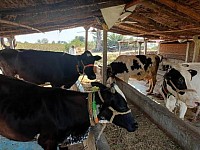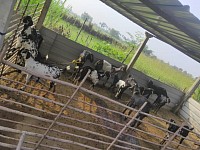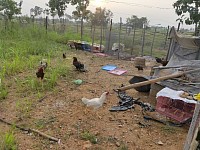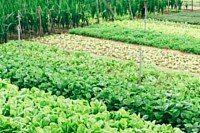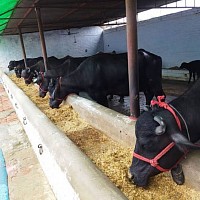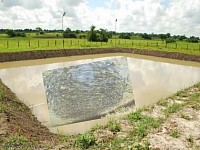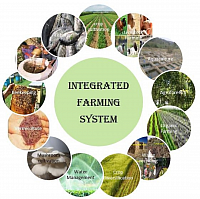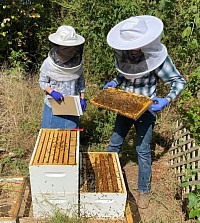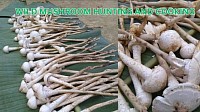Hands On Training & Designing & Development & Course & Certification
Agricultural training development focuses on enhancing skills through certification and courses in areas like sustainable farming, agronomy, and agribusiness, with programs available online and offline, ranging from short-term workshops to full diplomas. Certifications provide practical skills and boost employment prospects, enabling individuals to manage farms, become agricultural consultants, or research new practices in a constantly evolving sector. and private institutions offer structured training and certification in areas such as organic farming, hydroponics, and post-harvest management, aligning with national skill development initiatives
Below Our Training Course
-----------------------------
COW Diary Farming
Discover comprehensive Dairy Cow farming strategies with Kamadhunu cow farm course. Covering breeds, feeding, housing, milking, breeding, and market insights. Perfect for aspiring farmers. etc........
Goat's / Sheep's Farming
Master essential Goat & Sheep farming skills with this comprehensive online course by Kamadhunu Farms. Learn about breeds, feeding, reproduction, health management, and market strategies.
Poultry Farming
Are you looking to set up your own poultry farming business? This agriculture course explains how poultry farming works and provides all the information and skills you need to get your business up and running. We take you through each step, from setting up the appropriate housing conditions for chickens to ensuring that the best possible eggs are produced. This course focuses on the UK but its principles can be applied anyway to farm birds.
Growing Organic Food Sustainably
Kamadhunu Farms provides a training course, "Growing Organic Food Sustainably," which teaches the skills needed to cultivate organic food,
Buffalo Diary Farming
Buffalo dairy farming is a livestock business focused on raising buffaloes for milk, which is valued for its high butterfat content. Key considerations for success include acquiring good-quality Murrah buffaloes, securing a location near market facilities and veterinary services, providing adequate fodder through land for cultivation and irrigation, managing feed and medicine availability, and obtaining proper training in scientific dairy farming practices.
Fish Farming
Fish farming, or pisciculture, is the controlled cultivation of fish in artificial environments like tanks or ponds to produce food for human consumption. As a form of aquaculture, it involves breeding, rearing, and harvesting fish under specific conditions to provide a predictable supply and reduce pressure on wild fish populations. Key aspects include managing water quality, feeding, and the overall health of the fish to ensure a healthy and productive operation.
Integrated Farm & Diversified Farm Management
Integrated farm or Diversified farm is a type of farm that incorporates multiple agricultural activities, including crop cultivation (agriculture), raising livestock, and producing dairy products, fishery, Goats, sheeps, poultry, etc... creating a diversified and self-sufficient system. These farms often integrate activities to create synergistic benefits, such as using manure from livestock to fertilize crops.
Beekeeping Farming
Beekeeping farming, or apiculture, is the practice of managing honey bee colonies in artificial hives for the commercial production of honey, beeswax, pollen, propolis, and royal jelly. It also boosts agricultural productivity through crop pollination and provides income and employment, especially in rural areas. This low-investment, sustainable practice involves training, protective gear, and regular hive inspections to ensure colony health and product yield.
Mushroom Farming
Mushroom farming, or fungiculture, is the process of cultivating fungi, like mushrooms, using a prepared medium such as compost or straw, requiring controlled temperature, humidity, and substrate. Key steps involve selecting mushroom species, preparing the growing medium with spawn, inoculating the substrate, incubating the mycelium (vegetative growth), adding casing soil, and finally harvesting the mature mushrooms. This can be done for personal use or as a profitable business, though it requires a clean, controlled environment to prevent contamination and ensure good yields.
